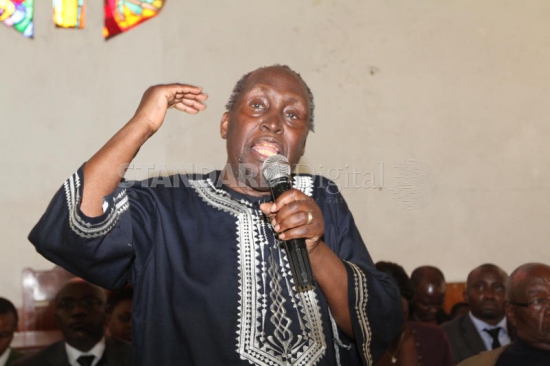
NAIROBI: Africa’s most famous living author Ngugi wa Thiong’o leaves the country this evening to continue his global tour, heading out to Latin America and later the Caribbean, only hours after delivering his last public lecture aptly titled, Planes Must Fly.
Drawing on a metaphor of Nyeri mechanic Maurice Gachamba, whose lofty vision of innovation was clipped by an overzealous technocrat in the 1970s, the lecture was received with thunderous applause that threatened to lift the roof off the Taifa Hall as University of Nairobi chanted songs of praise.